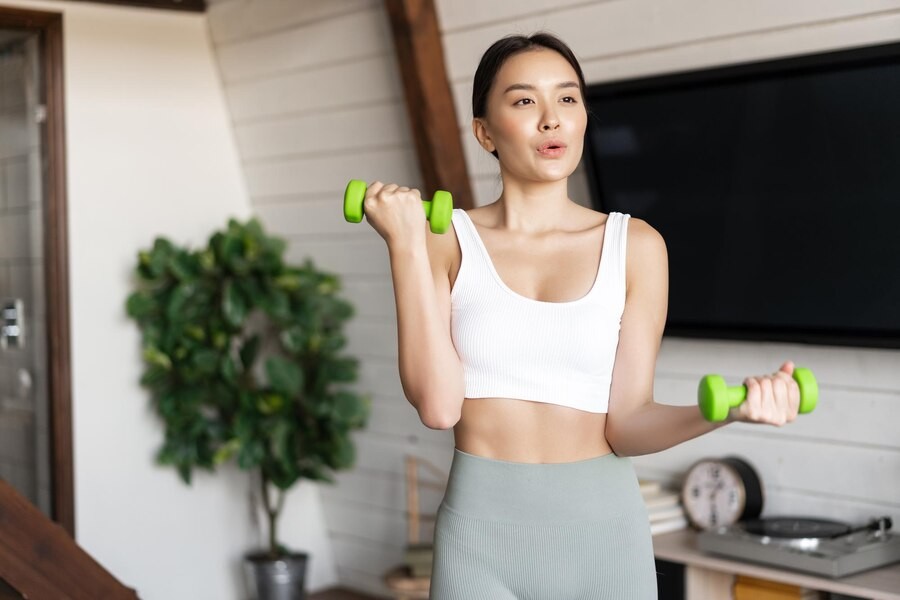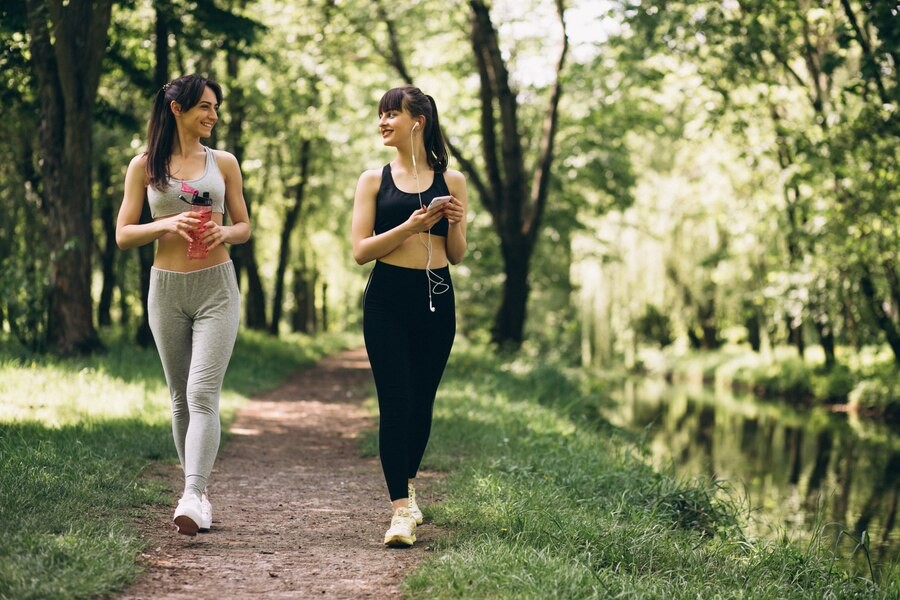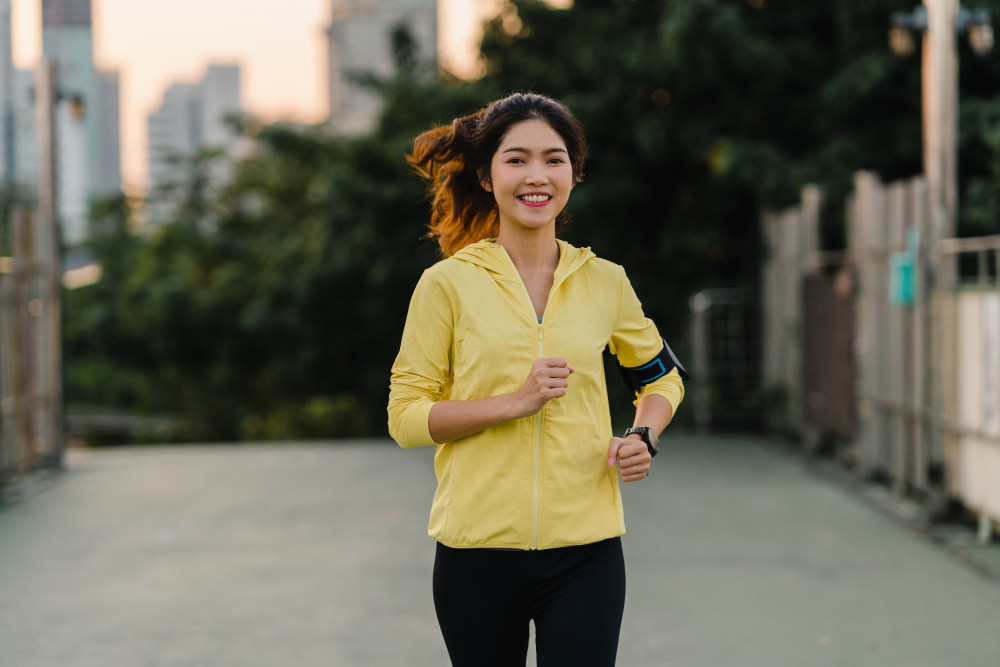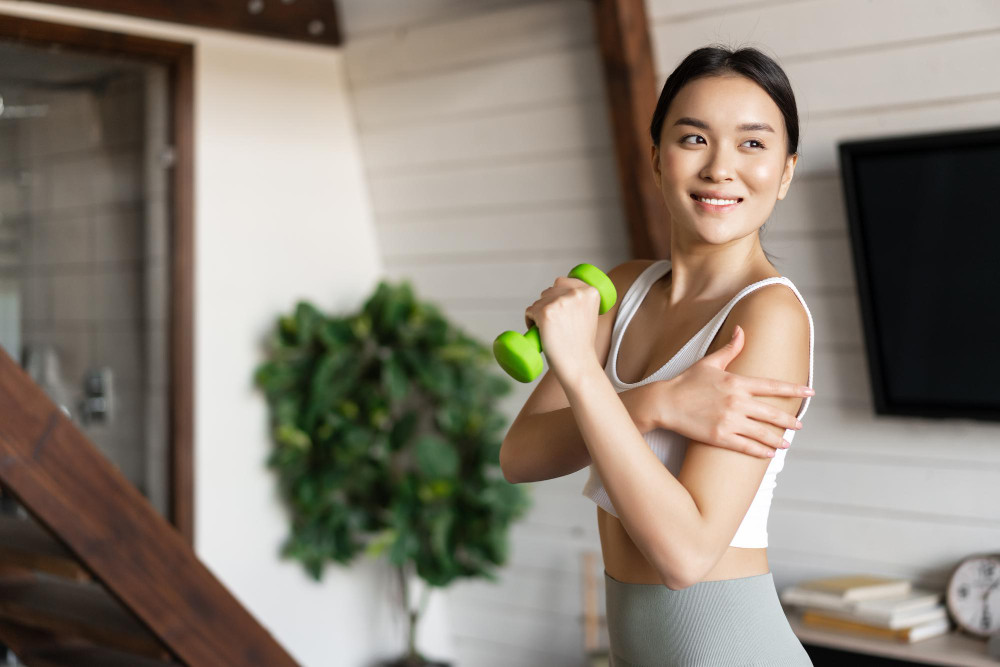Berkeringat saat berolahraga adalah hal yang sangat wajar dan merupakan respons alami tubuh terhadap peningkatan suhu tubuh. Ketika otot-otot bekerja lebih keras, suhu tubuh akan naik, dan tubuh akan mengeluarkan keringat sebagai cara untuk mendinginkan diri dan menjaga suhu tubuh tetap stabil.
Namun, ada beberapa orang yang mungkin tidak berkeringat meskipun sedang berolahraga. Kondisi ini bisa menjadi tanda adanya masalah kesehatan yang perlu diperhatikan.
Penyebab Tidak Berkeringat saat Sedang Olahraga
Jika tubuh tidak berkeringat selama aktivitas fisik, ini bisa menjadi tanda adanya gangguan atau kondisi kesehatan tertentu. Berikut beberapa faktor yang dapat menyebabkan tubuh tidak berkeringat saat berolahraga:
Gangguan kelenjar keringat
Gangguan pada kelenjar keringat, seperti anhidrosis (ketidakmampuan tubuh untuk menghasilkan keringat) atau hipohidrosis (produksi keringat yang sangat sedikit), dapat menjadi penyebab utama tubuh tidak berkeringat saat beraktivitas fisik. Kedua kondisi ini terjadi karena kerusakan pada kelenjar keringat atau gangguan pada sistem saraf yang mengatur proses berkeringat.
Baca Juga: Tangan Sering Berkeringat Apakah Pertanda Penyakit Jantung?
Dehidrasi
Penyebab lain seseorang tidak berkeringat saat berolahraga adalah dehidrasi. Ketika tubuh kekurangan cairan, produksi keringat dan urine bisa berkurang karena tubuh mencoba menghemat cairan untuk menjaga keseimbangan cairan tubuh.
Dehidrasi bisa terjadi karena kurang minum air, berolahraga terlalu lama, atau berada di lingkungan yang sangat panas. Dehidrasi ditandai dengan gejala, seperti mulut kering, kelelahan, pusing, serta warna urine yang lebih gelap.
Pengaruh obat-obatan
Beberapa jenis obat dapat memengaruhi fungsi kelenjar keringat dan menghambat produksi keringat, seperti antihistamin, antidepresan, antiepilepsi, dan lain sebagainya. Obat-obatan tersebut dapat menyebabkan tubuh tidak merespons panas dengan normal, sehingga produksi keringat menurun atau bahkan berhenti.
Informasikan dan konsultasikan kembali dengan dokter apabila Anda mengalami gejala tidak berkeringat setelah mengonsumsi obat tertentu.
Suhu lingkungan terlalu dingin
Di suhu yang sangat rendah, tubuh cenderung tidak menghasilkan keringat meskipun sedang berolahraga. Hal ini disebabkan karena tubuh tidak merasa perlu mengaktifkan mekanisme pendinginan, seperti yang terjadi saat beraktivitas di lingkungan yang panas.
Alasannya adalah tubuh mengatur suhu internal dengan sangat hati-hati, dan ketika berada di lingkungan dingin, tubuh justru akan berfokus untuk menghangatkan diri, bukan mendinginkannya.
Baca Juga: Botox Ketiak untuk Mencegah Keringat Berlebih, Efektifkah?
Faktor genetik
Dalam beberapa kasus, faktor genetik dapat menjadi penyebab seseorang tidak berkeringat atau memproduksi keringat yang sedikit, bahkan saat berolahraga dengan intensitas tinggi. Beberapa orang mungkin memang secara alami memiliki lebih sedikit kelenjar keringat, yang dapat membuat mereka lebih jarang berkeringat meskipun melakukan aktivitas fisik yang berat.
Jika Anda merasa tidak berkeringat saat berolahraga, terutama saat melakukan olahraga intens atau dalam kondisi yang biasanya memicu keringat, sebaiknya konsultasikan dengan dokter. Ketidakmampuan untuk berkeringat secara tiba-tiba bisa menjadi tanda adanya masalah kesehatan yang perlu dievaluasi lebih lanjut.
Anda juga bisa memanfaatkan layanan konsultasi kesehatan pada aplikasi Ai Care dengan mengunduhnya melalui App Store atau Play Store.
Mau tahu tips dan trik kesehatan, pertolongan pertama, dan home remedies lainnya? Cek di sini, ya!
- dr Nadia Opmalina
Lynne Eldridge, MD (2022). What Is Lack of Sweating?. Available from: https://www.verywellhealth.com/lack-of-sweating-5074958
HSS (2022). What It Means if You’re *Not* Sweating During Your Workout. Available from: https://news.hss.edu/what-it-means-if-youre-not-sweating-during-your-workout
Cleveland Clinic (2021). Anhidrosis (Lack of Sweat). Available from: https://my.clevelandclinic.org/health/diseases/15891-anhidrosis-lack-of-sweat
Lauren Del Turco (2023). Why Some People Seem to Never Sweat When They Work Out — and When It’s a Problem. Available from: https://www.everydayhealth.com/healthy-living/fitness/why-some-people-seem-to-never-sweat-when-they-work-out-and-when-its-a-problem/
Amanda MacMillan (2023). Why Do I Sweat So Much When I Workout?. Available from: https://www.health.com/fitness/facts-about-sweat
WebMD (2023). What Is Hypohidrosis?. Available from: https://www.webmd.com/skin-problems-and-treatments/what-is-hypohidrosis
Cleveland Clinic (2023). Dehydration. Available from: https://my.clevelandclinic.org/health/diseases/9013-dehydration












